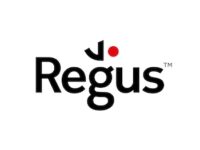Small businesses looking to thrive in today’s market are increasingly turning to hybrid work models. This strategy isn’t limited to home-based operations – it’s about finding the perfect location for you to cultivate growth. Regus assists startups by offering ideal coworking spaces or remote-friendly areas that complement your business’s evolution. Then, as your enterprise flourishes, your workspace can effortlessly expand, with cost-effective solutions offering the financial agility necessary to support your company’s upward trajectory.
Flexible workspaces like those offered by IWG (which includes leading workspace brands Regus, Spaces, HQ & Signature) eliminate the need for long-term leases and the associated costs of traditional office setups, such as utilities, maintenance, and office furniture which leads to reduced overheads. Additionally, you’ll only pay for the space you need, when you need it. With low commitment membership packages tailored to suit your circumstances, embracing flexible working can help drive your startup’s success in this ever-evolving work landscape.
As your startup grows, Regus makes it easy to scale up by renting additional space. Conversely, if you need to downsize, flexible workspaces can offer the option to scale down without financial penalties. Regus offers locations in key business districts, providing you with a prestigious address that can enhance your brand image fully equipped with essential office amenities such as high-speed internet, meeting rooms, and office equipment, allowing you to focus on your business rather than office management.
Striking the right work-life balance
Whether you work to live or live to work, it’s important to get the balance right. This flexible arrangement brings multiple benefits, the main one being it fosters a healthier work-life balance. By reducing commute times and having the convenience of working from home, you can allocate more time to family, hobbies, or simply recharging. Additionally, the autonomy gained by being able to manage your own schedule can lead to increased productivity, job satisfaction, and overall well-being.
Hybrid is a magnet for attracting top talent
Hybrid working is also a powerful tool for attracting top talent. It changes the geography of work, allowing businesses to hire talent globally, as there’s no need for employees to be close to headquarters. With 77 per cent of employees considering a flexible workspace close to home essential for their next job, hybrid working is the key to attracting the best candidates.
IWG’s Australian Hybrid Workers Survey revealed that Australians value the hybrid work model more than ever, often carefully assessing companies’ hybrid-workplace policies before accepting a job offer, with 76 per cent of workers saying hybrid working had decreased their stress levels and made them happier.
An overwhelming 72 per cent of staff reported preferring this flexible approach, even if a traditional office meant earning more money. And 88 per cent cite hybrid work as a top requirement when seeking new jobs, making solutions like Regus key for attracting top talent.
“Employees have realised they’ve been wasting time commuting when they don’t need to be in an office,” Mark Dixon, CEO and Founder of IWG. “While businesses recognise a hybrid model means happier, more engaged employees and significant cost savings.”
A more sustainable future
As the world races towards Net Zero, companies face increasing pressure to adopt eco-friendly practices. According to IWG, 78 per cent of hybrid workers believe flexible working should be integrated into their company’s ESG plans, and they’re right. The hybrid model not only eliminates the daily commute and its associated pollution, but also allows companies to downsize office space, leading to reduced energy consumption and lower ongoing costs. A landmark study by IWG found that hybrid working could reduce urban carbon emissions by up to 70 per cent in London, benefiting both the planet and businesses.
“The single biggest positive environmental change we can all make is to provide people with the choice to work closer to where they live,” says Mark Dixon.
In fact, it has been shown that buildings currently account for 40 per cent of societal energy use, and that every unused desk in an office creates a tonne of unnecessary CO2 each year equivalent to driving a car 6,000 miles.
Improve your startup’s work-life balance today with a visit
To discover how Regus can help your startup find a better work-life balance visit regus.com/success.










